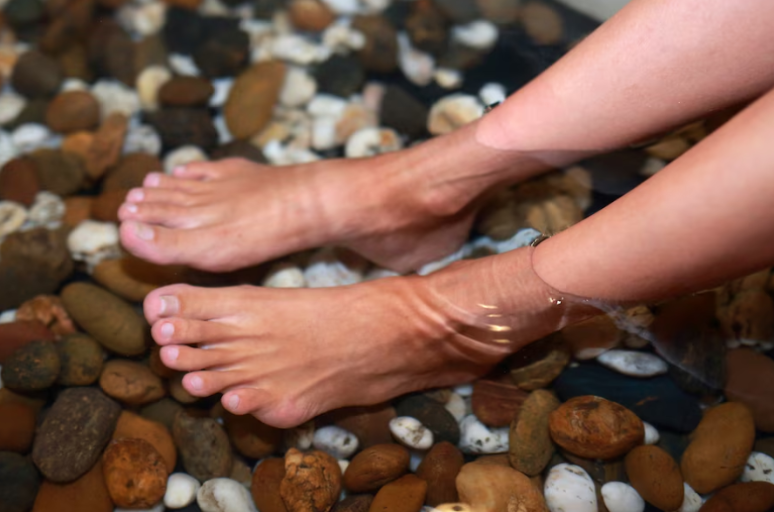Joint pain can be debilitating, affecting individuals’ daily lives and overall well-being. It’s not uncommon for people to experience joint pain due to various factors, including injuries, arthritis, or age-related wear and tear. However, there is another factor that often goes unnoticed but can significantly impact joint pain: emotions.
The connection between emotions and joint pain
When we experience emotions, such as stress, anxiety, or depression, our bodies respond in various ways. One lesser-known response is how our emotions can manifest as physical sensations, including joint pain. Research has shown a significant link between emotions and the perception of pain, particularly in individuals with chronic conditions like arthritis.
Understanding joint pain: Causes and symptoms
Before delving into the impact of emotions on joint pain, let’s first understand joint pain itself. Joint pain refers to discomfort, soreness, or inflammation in the joints, which are the areas where bones meet. It can occur in any part of the body, such as the knees, shoulders, hips, or hands.
Definition of joint pain
Joint pain is a broad term that encompasses a range of sensations, from mild discomfort to severe pain. It can be acute, lasting for a short period, or chronic, persisting for weeks, months, or even years.
Common causes of joint pain
Several factors can contribute to joint pain. Common causes include injuries, such as
- Sprains or strains
- Arthritis (including osteoarthritis and rheumatoid arthritis)
- Bursitis
- Tendonitis
- Gout
Additionally, certain medical conditions, infections, and lifestyle factors like obesity or repetitive motions can also lead to joint pain.
Symptoms of joint pain
The symptoms of joint pain can vary depending on the underlying cause and severity. Common symptoms include
- Stiffness
- Swelling
- Redness
- Warmth around the joint
- Limited range of motion
- Aching or throbbing sensations
Emotions and their impact on joint pain
It’s well-known that emotions can affect our overall well-being, but their impact on joint pain is often underestimated. Let’s explore how different emotions can contribute to joint pain.
Stress and joint pain
Stress is a prevalent emotion in today’s fast-paced world, and it can have detrimental effects on our bodies. Studies have found that chronic stress can exacerbate joint pain and increase the perception of discomfort. Stress triggers the release of stress hormones like cortisol, which can lead to increased inflammation and heightened sensitivity to pain.
Anxiety and joint pain
Anxiety is another emotion that can intensify joint pain. When we feel anxious, our bodies go into a state of hyperarousal, which can cause muscle tension and joint stiffness. Individuals with anxiety disorders may experience heightened pain sensitivity, making their joint pain more distressing.
Depression and joint pain
Depression is a complex mood disorder that can manifest physically as well. Research suggests a bidirectional relationship between depression and joint pain, with each condition potentially exacerbating the other. Depression can lead to decreased physical activity, poor sleep quality, and alterations in pain perception, all of which can contribute to joint pain.
The science behind the connection
The link between emotions and joint pain is not merely anecdotal; it has a scientific basis. Several factors contribute to this connection.
- Role of stress hormones
Stress triggers the release of stress hormones like cortisol and adrenaline. These hormones can increase inflammation in the body, leading to joint pain. Moreover, elevated stress levels can also affect the immune system, making individuals more susceptible to inflammatory conditions like arthritis.
- Inflammation and its link to emotions
Inflammation plays a crucial role in joint pain. Emotions like stress and anxiety can increase systemic inflammation, which can aggravate existing joint conditions or contribute to the development of new ones. Chronic inflammation can lead to joint damage and further pain.
- Neurological factors
Our nervous system plays a vital role in how we perceive and experience pain. Emotions can influence the neurological pathways involved in pain processing, amplifying the signals sent to the brain. This can result in heightened pain sensitivity and a lower pain threshold.
Managing emotions for joint pain relief
To effectively manage joint pain, it’s crucial to address the emotional factors that contribute to it. Here are some strategies to help you manage your emotions and find relief.
- Stress management techniques
Implementing stress management techniques can significantly alleviate joint pain. Engaging in activities like meditation, deep breathing exercises, yoga, or engaging in hobbies can help reduce stress levels and promote relaxation.
- Anxiety-reducing strategies
When anxiety exacerbates joint pain, incorporating anxiety-reducing strategies can be beneficial. Techniques like mindfulness, cognitive-behavioral therapy (CBT), or seeking professional support can help individuals better cope with anxiety and its impact on joint pain.
- Holief wellness Drops + Joint Pain
When it comes to managing joint pain, addressing the emotional aspect is as important as targeting the physical symptoms. Wellness Drops by Holief provide a natural solution that can complement your everyday wellness routine.
Holief wellness Drops are specifically designed to offer the benefits of the highest quality hemp extract. With just a single drop, you can incorporate the therapeutic properties of broad-spectrum hemp into your daily regimen. Holief wellness Drops contain hemp extract, medium-chain triglycerides (MCT) oil, organic peppermint oil, and stevia extract.
- Combating depression
Managing depression involves a holistic approach. Alongside therapy or medication, engaging in regular exercise, maintaining a healthy diet, and connecting with supportive individuals can help alleviate both emotional distress and joint pain.
Lifestyle changes for overall well-being
In addition to managing emotions, certain lifestyle changes can contribute to overall well-being and alleviate joint pain.
Exercise and its impact on joint pain
Regular exercise plays a vital role in maintaining joint health. Low-impact exercises like swimming, cycling, or yoga can help improve joint flexibility, strengthen surrounding muscles, and reduce pain. Consult with a healthcare professional to develop an exercise routine tailored to your specific needs.
Healthy diet and joint health
Eating a well-balanced diet rich in nutrients can support joint health. Incorporate foods like fatty fish (rich in omega-3 fatty acids), colorful fruits and vegetables (loaded with antioxidants), whole grains, and lean proteins. Avoid inflammatory foods like processed snacks, sugary beverages, and excessive red meat.
Importance of rest and sleep
Proper rest and quality sleep are essential for joint pain management. Establish a regular sleep routine, create a comfortable sleep environment, and prioritize relaxation techniques before bed. Adequate rest allows the body to repair and rejuvenate, aiding in pain relief.
Conclusion
Emotions and joint pain share a profound connection. By understanding and addressing the emotional factors that contribute to joint pain, individuals can improve their overall well-being and find relief. Alongside lifestyle changes, incorporating natural solutions like wellness Drops by Holief can provide additional support in managing joint pain and promoting a healthier, more balanced life.











